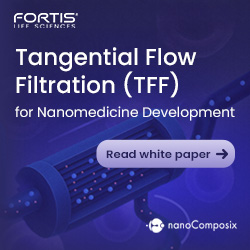Rigel Announces First Patient Enrolled in Phase 1b/2 Trial of REZLIDHIA (olutasidenib) in mIDH1 AML
Rigel Pharmaceuticals, Inc.recently announced the first patient has been enrolled in a Phase 1b/2 triplet therapy trial of decitabine and venetoclax in combination with REZLIDHIA (olutasidenib) in patients with mutated isocitrate dehydrogenase-1 (mIDH1) acute myeloid leukemia (AML). REZLIDHIA is a potent, selective, oral, small-molecule inhibitor of mIDH1, designed to bind to and inhibit mIDH1 to reduce 2-hydroxyglutarate levels and restore normal cellular differentiation of myeloid cells, that is approved for the treatment of relapsed or refractory (R/R) mIDH1 AML.
The clinical trial is sponsored and is being conducted by The University of Texas MD Anderson Cancer Center (MD Anderson) and opened for enrollment in August (NCT06445959). The trial is led by principal investigator Courtney DiNardo, MD, MSCE, Professor of Leukemia at MD Anderson. It is a multi-center, open-label, non-randomized clinical trial, with the Phase 1b part of the trial seeking to determine the safety and tolerability and recommended Phase 2 dose of oral or intravenous (IV) decitabine and venetoclax in combination with olutasidenib in mIDH1 R/R patients. The Phase 2 part of the trial will include 60 patients and its primary objective is to determine the complete remission rate in both newly diagnosed (n=30) and R/R mIDH1 AML patients (n=30). This is the first trial in Rigel’s multi-year strategic development alliance with MD Anderson.
“We believe REZLIDHIA has strong potential in a wide range of cancers where mIDH1 plays an important role. Studying REZLIDHIA in combination with two widely used agents in AML could provide a new all-oral front-line option to patients who are in urgent need of innovative treatments,” said Raul Rodriguez, Rigel’s president and CEO. “MD Anderson is the ideal partner on this journey to evaluate REZLIDHIA’s impact on AML and other hematological cancers. We are excited to have the first patient enrolled in this initial trial in mIDH1 AML.”
As part of the strategic alliance with MD Anderson related to IDH1 mutated hematologic neoplasms, Rigel and MD Anderson will evaluate the potential of olutasidenib in combination with other agents to treat newly diagnosed and R/R patients with AML, higher-risk myelodysplastic syndromes (MDS) and advanced myeloproliferative neoplasms (MPN). The alliance will also support the evaluation of olutasidenib as monotherapy in clonal cytopenia of undetermined significance (CCUS), lower-risk MDS and as maintenance therapy in post-hematopoietic stem cell transplant patients.
Acute myeloid leukemia (AML) is a rapidly progressing cancer of the blood and bone marrow that affects myeloid cells, which normally develop into various types of mature blood cells. AML occurs primarily in adults and accounts for about 1% of all adult cancers. The American Cancer Society estimates that there will be about 20,800 new cases in the US, most in adults, in 2024.
Relapsed AML affects about half of all patients who, following treatment and remission, experience a return of leukemia cells in the bone marrow. Refractory AML, which affects between 10 and 40 percent of newly diagnosed patients, occurs when a patient fails to achieve remission even after intensive treatment. Quality of life declines for patients with each successive line of treatment for AML, and well-tolerated treatments in relapsed or refractory disease remain an unmet need.
Rigel Pharmaceuticals, Inc. (Nasdaq: RIGL) is a biotechnology company dedicated to discovering, developing and providing novel therapies that significantly improve the lives of patients with hematologic disorders and cancer. Founded in 1996, Rigel is based in South San Francisco, CA. For more information, visit www.rigel.com.
Total Page Views: 557









